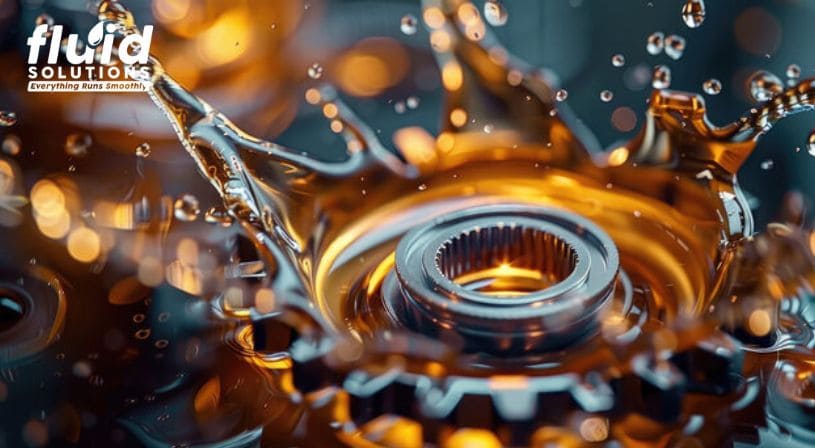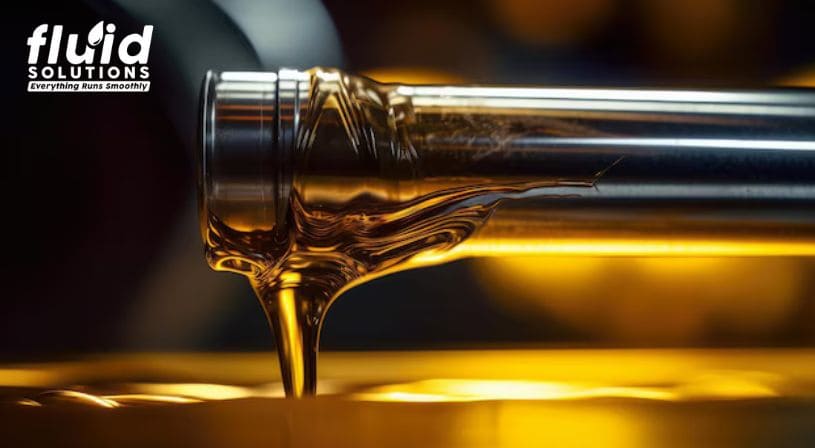
Source: https://stock.adobe.com/search/images?k=hydraulic+fluid&asset_id=833615244
Hydraulic fluids are essential for the smooth and efficient operation of various industrial systems. This discussion focuses on the selection and specifications of mineral-based hydraulic fluids, emphasizing their importance in maintaining optimal system performance and cost-effectiveness. When considering hydraulic fluid price, it’s important to understand that the investment in high-quality fluids can significantly impact long-term operational efficiency.
Importance of Hydraulic Fluids
Hydraulic fluids are vital lubricants in industrial settings, playing a critical role in hydraulic systems where they are compressed to generate, transfer, and control force. These fluids power heavy mechanical actions, such as pushing, pulling, bending, and lifting. The wide range of hydraulic fluid applications includes use in heavy equipment (e.g., backhoes, loaders, dump trucks), metalworking machines (e.g., CNC lathes & mills, die cast machines, plastic injection machines), lifting devices (e.g., jacks, car lifts), and other industrial hydraulic fluids essential across various sectors.
Other Functions of Hydraulic Fluids
- Lubrication: One of the primary functions of hydraulic oil is to reduce friction and wear, prolonging the life of hydraulic pumps and cylinders, which is crucial for maintaining efficient operations.
- Smooth Operation: Hydraulic oils ensure the smooth, non-jerky motion of hydraulic cylinders, contributing to precise and reliable performance.
- Rust and Corrosion Prevention: These fluids play a key role in preventing rust and corrosion, protecting system components from damage.
- Heat Absorption: Absorbing the heat generated within the system is another vital function of hydraulic oil, helping to maintain optimal operating temperatures and prevent overheating.
- Contaminant Transport: Hydraulic fluids transport contaminants to filters, ensuring the system remains clean and operates efficiently, thereby minimizing wear and extending the life of the equipment.
Key Parameters for Selecting Hydraulic Oil

Source: https://stock.adobe.com/search/images?k=hydraulic+fluid&asset_id=833615244
Viscosity
Viscosity refers to a fluid’s resistance to flow, typically measured in cst at 40°C or as ISO VG. Proper viscosity ensures an adequate oil film separates all sliding and rotating surfaces, extending component life. For most hydraulic applications, ISO VG 32, 46, 68, and 100 are commonly used. It’s crucial to adhere to the equipment manufacturer’s viscosity recommendations during hydraulic oil selection, as using a fluid with too low viscosity can cause abnormal wear, leakages, and loss of precision control. Conversely, too high viscosity can lead to sluggish mechanical action, increased operating temperatures, and unfilled lubricating areas.
Viscosity Index (VI)
The Viscosity Index measures how much a fluid’s viscosity changes with temperature. For mineral-based hydraulic fluids, a VI of > 90 is the standard, ensuring stable performance across a range of operating conditions.
Anti-Wear (AW) Protection
While correct viscosity provides friction reduction, sometimes it’s insufficient due to high temperatures or contaminants. Anti-Wear (AW) additives in hydraulic fluids activate at elevated temperatures to form a protective layer on metal surfaces, preventing wear when viscosity alone can’t offer protection. This is critical for avoiding lubricant degradation.
Demulsibility
Hydraulic fluids should easily separate water to facilitate its removal. Water is detrimental as it does not provide rust protection or lubrication and can cause reactions leading to premature lubricant degradation.
Air-Release and Anti-Foam Properties
Foam, generated by the agitating action of hydraulic pumps, should be minimized. Anti-foaming additives are typically included in hydraulic fluid formulations to prevent foam, ensuring consistent fluid performance.
Oxidation and Thermal Resistance
Exposure to high temperatures, moisture, and oxygen causes lubricant degradation. Ideally, hydraulic fluids should have an oil life of at least 12 months to maximize operational uptime and maintain cost efficiency when considering hydraulic fluid price.
Filterability of Additives
Modern hydraulic systems use fine filters, with mesh sizes as low as 25 microns. The additives in hydraulic fluids must be small enough to pass through these filters without causing blockages.
Material Compatibility
Hydraulic oils should not react negatively with seals, o-rings, gaskets, paints, and plastics used in the system, ensuring long-term material integrity and system reliability.
Best Practices in Hydraulic Oil Selection
Brand Reliability
Choosing hydraulic oils from globally recognized brands is a reliable approach to ensuring quality and performance. This practice is important when considering the overall hydraulic fluid price and the long-term benefits of using superior products.
Evaluation of Lesser-known Brands:
When considering lesser-known brands, it’s crucial to thoroughly review the manufacturer’s Technical Data Sheet (TDS) and ensure that the oil meets the specifications for your specific hydraulic fluid applications.
Conclusion
Choosing the appropriate hydraulic oil is essential for ensuring optimal system performance and extending the lifespan of your equipment. By understanding the functions of hydraulic oil and the key parameters for hydraulic oil selection, you can make informed decisions that enhance the efficiency and durability of your hydraulic systems. Considering factors such as hydraulic fluid price and potential lubricant degradation is essential for long-term operational success.
Choose Fluid Solutions for Your Hydraulic Oil Needs
Fluid Solutions is a trusted provider of high-quality hydraulic oils designed to meet the demanding requirements of industrial applications. Whether you need help to select the right hydraulic fluid or are looking for a reliable supplier, Fluid Solutions has you covered. Contact Fluid Solutions today at (02) 8370 5928 / (0917) 894 9156 or via email at inquiry@fluidsolutions.com.ph to learn more about how we can enhance the performance and longevity of your equipment.


